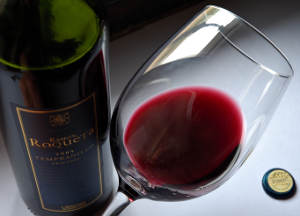 this week by Rabobank's Food & Agribusiness Research and Advisory group, two possible strategies for growth and internationalization of the Spanish wine sector were explored.
this week by Rabobank's Food & Agribusiness Research and Advisory group, two possible strategies for growth and internationalization of the Spanish wine sector were explored.Spain must either boost the production of international varietals or develop consumer demand for its traditional varietals in the foreign market, in order to bolster its position in the competitive industry, according to the report.
For either strategy, the process of achieving greater success in extra-EU markets could be facilitated by continued efforts to restructure the supply base, according to the research.
“While Spain has seen marked improvements in its wine production efficiency as a result of EU subsidies, it still struggles to build penetration in non-EU markets,” states Rabobank analyst Stephen Rannekleiv. “In conjunction with grubbing-up subsidies, Spain was also a major recipient of vineyard restructuring funds which has raised yields and is expected to lead to an increase in wine in the market. A pressing concern for many is that much of this increased production is destined for markets already dealing with their own oversupply issues, such as France and Italy.”
While these EU markets will remain important destinations for Spanish bulk wine, Rabobank say that the industry must focus efforts on building market demand outside the EU. Spain will need to build stronger brands in international markets and adopt a more consumer-driven marketing focus which will require continued improvement of grower and brand-owner alignment.
An additional albeit more challenging option and longer process for Spanish producers is to build consumer acceptance of traditional wine grapes as signature varietals (e.g. Tempranillo) to attain more premium pricing. However, positioning it as such will require a consumer-led approach and will require coordinated efforts between growers, cooperatives and the large Spanish wine brand owners that will take time to develop.
“Improving the ability of suppliers in Spain’s main production region of Castilla-La Mancha to develop strong brands with demand beyond the EU markets will have an important positive impact on the wine industry in Spain, but also in the rest of the EU,” said Rannekleiv.





